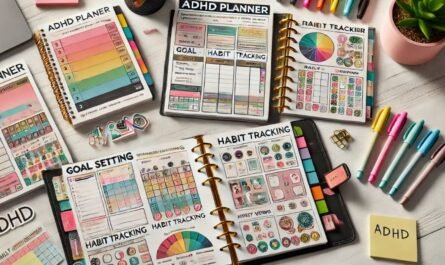Mental health and emotional health, while related, have distinct characteristics and implications for overall well-being. With a rising emphasis on understanding the holistic nature of wellness, it’s crucial to understand how these terms differ, yet how they intersect.
What is Mental Health?
Mental health refers to cognitive, behavioral, and emotional well-being. It is about how individuals think, feel, and act. Ensuring good mental health is essential for making choices and decisions, building relationships, and navigating daily life. A term frequently linked with mental health is “mental hygiene,” reflecting the practices and habits that help maintain cognitive wellness.
Example: When someone says they are “Taking a Mental Health Day Off Work,” it means they are taking time to recharge and ensure their mental wellness is in check. This can be beneficial for preventing burnout and ensuring one is at their best when working.
What is Emotional Health?
Emotional health focuses on an individual’s ability to manage and express their emotions effectively. It’s about recognizing, understanding, and correctly expressing feelings. Emotionally healthy individuals can handle life’s challenges, recover from setbacks, and establish and maintain healthy relationships. “Emotional Health Definition” can be explored more in-depth to gain an understanding of its intricate facets.
Example: When someone is “In Emotional Pain,” they are experiencing a range of feelings that might be related to a specific incident, unresolved past trauma, or ongoing stressors.
10 Questions on Comparing and Contrasting Mental Health and Emotional Health
1. How are mental health and emotional health interconnected?
- Mental health and emotional health are intertwined as emotions often stem from our thoughts, and our thoughts can be influenced by our emotions.
- A person with sound mental health can often handle emotions better, but that doesn’t mean they are emotionally healthy.
- Conversely, being emotionally healthy does not exempt someone from mental health issues like depression or anxiety.Summary:
- Emotions arise from thoughts.
- Good mental health can aid in emotional management.
- Being emotionally healthy doesn’t mean absence of mental health issues.
2. Why is there confusion between the terms?
- The terms are often used interchangeably because they both deal with the mind and feelings.
- Both mental and emotional health affect how we think, feel, and behave.
- However, while they overlap, each has its unique aspects, which is why it’s essential to “compare and contrast mental and emotional health.”Summary:
- Both terms relate to mind and feelings.
- They influence thinking, feeling, and behavior.
- Each term has distinct characteristics.
3. How does emotional sickness manifest?
- Emotional sickness can show up as persistent feelings of sadness, extreme mood fluctuations, or an inability to handle emotional situations.
- “Types of emotional sickness” can range from mild disturbances in mood to more severe disorders.
- Recognizing these signs is the first step towards seeking the appropriate care and support.Summary:
- Shows as mood disturbances.
- Ranges from mild to severe.
- Recognition is crucial for seeking care.
4. What role do life events play in mental and emotional health?
- Major life events, whether positive or negative, can significantly impact both mental and emotional health.
- For instance, students’ emotional well-being can be influenced by academic pressures, social dynamics, and personal life situations.
- It’s essential to be aware of these triggers and work towards building resilience.Summary:
- Life events impact both areas of health.
- Academic and social pressures influence students.
- Awareness and resilience are crucial.
5. How do anxiety and depression fit into this?
- Anxiety and depression are common mental health disorders that can also deeply influence one’s emotional health.
- An “anxiety attack” is a manifestation of intense fear or distress, often without a clear cause.
- The saying “depression is real” underscores the significant impact it can have on an individual’s overall well-being, including their emotional state.Summary:
- Both disorders affect mental and emotional health.
- Anxiety manifests as intense fear.
- Depression significantly impacts well-being.
6. Why is maintaining good mental health essential?
- “Mental health is health.” This statement highlights that mental well-being is just as crucial as physical health.
- Good mental health allows individuals to realize their potential, cope with stress, and contribute meaningfully to their communities.
- When one’s mental health is in check, they can better manage their emotions, leading to better emotional health.Summary:
- Mental health equals overall health.
- Allows for realizing potential and handling stress.
- Contributes to emotional health management.
7. How does one ensure they are emotionally healthy?
- Self-awareness is a critical component of emotional health. Recognizing and accepting one’s emotions is the first step.
- Seeking professional help, like therapy, can provide strategies for managing emotions.
- Resources like “In Emotional Pain: A Comprehensive Guide to Understanding and Alleviating It” can offer guidance.Summary:
- Self-awareness is crucial.
- Professional help can offer strategies.
- Resources provide guidance.
8. What treatment options are available for those struggling?
- A range of treatments is available, from therapy and counseling to medications.
- One can explore “What Are Some Effective Treatment Options Available for Mental Health Issues?” to understand these better.
- It’s essential to find what works best for the individual, considering their unique needs.Summary:
- Options range from therapy to medications.
- Many resources explain treatments.
- Individualized care is key.
9. How can one differentiate between a bad day and a deeper issue?
- Everyone has off days, but if negative feelings persist or interfere with daily life, it may signify a deeper problem.
- It’s vital to understand the difference between a fleeting emotion and an ongoing emotional or mental health issue.
- Resources like “Overcoming the Weight of Depression: 20 Tips to Get Motivated and Thrive” can offer insights into identifying and managing more profound issues.Summary:
- Persistence of negative feelings indicates issues.
- Differentiate between fleeting and ongoing issues.
- Resources help identify and manage problems.
10. Why is it essential to talk about these distinctions?
- Understanding the distinction helps in seeking the right help and support.
- It allows for better self-awareness and growth.
- The more we “compare and contrast mental health and emotional health,” the better equipped society will be in handling challenges related to them.Summary:
- Helps in seeking appropriate help.
- Facilitates self-awareness.
- Benefits society at large.
Main Points Summarized in a Table
| Topics | Mental Health | Emotional Health |
|---|---|---|
| Definition | Refers to cognitive, behavioral, and emotional well-being. | Focuses on the ability to manage and express emotions. |
| Importance | Crucial for decision-making, relationships, daily life. | Essential for handling challenges and maintaining relationships. |
| Manifestations | Can manifest as disorders like anxiety and depression. | Can show up as emotional sickness or disturbances in mood. |
| Role of Life Events | Influenced by personal and professional events. | Affected by life situations, e.g., academic pressures. |
| Treatments | Therapies, medications, counseling. | Self-awareness, professional help, therapy. |
FAQ Section
How are mental health and emotional health different?
Mental health deals with cognitive, behavioral, and emotional well-being, while emotional health is about managing and expressing emotions.
Is it okay to take a day off for mental health?
Yes, taking a “Mental Health Day Off Work” can help in preventing burnout and ensuring you’re at your best.
What is emotional sickness?
Emotional sickness can manifest as mood disturbances ranging from mild to severe.
Are anxiety and depression related to emotional health?
Yes, both disorders impact mental and emotional health, affecting how one thinks, feels, and behaves.
Why is it said, “Mental health is health”?
It emphasizes that mental well-being is as crucial as physical health for overall wellness.
How can I ensure I’m emotionally healthy?
Through self-awareness, professional help, and utilizing resources to understand and manage emotions.
Are there effective treatments for mental health issues?
Yes, treatments range from therapy to medications. Exploring resources like “What Are Some Effective Treatment Options Available for Mental Health Issues?” can help.
How to differentiate between a bad day and a deeper issue?
If negative feelings persist or impact daily life, it may signify a more profound issue.
Why talk about the differences between mental and emotional health?
Understanding the distinctions helps in seeking the right help and promoting better self-awareness and growth.
Can emotional pain be alleviated?
Yes, with the right resources and support, like “In Emotional Pain: A Comprehensive Guide to Understanding and Alleviating It,” emotional pain can be addressed and managed.

